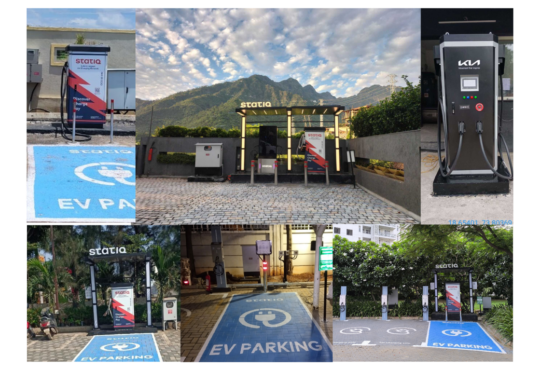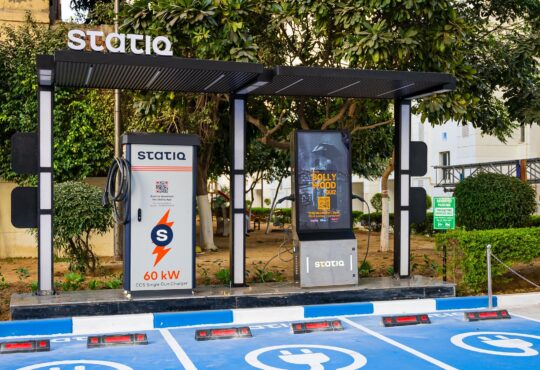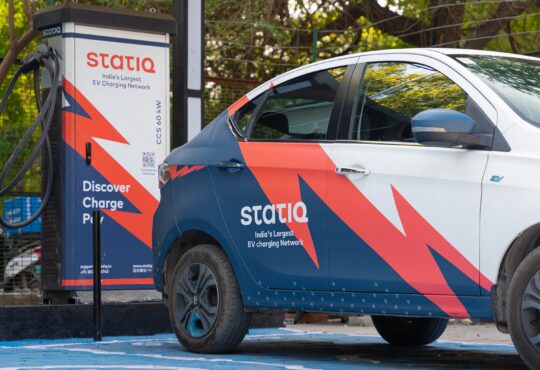
How Much Time Does It Take To Charge An Electric Vehicle?
Electric vehicles (EVs) have emerged as a compelling solution to reduce carbon emissions and promote sustainable mobility, creating a cleaner and greener future. People are now embracing EVs not only because of sustainability but also because of low-cost maintenance, saving thousands on fuel prices.
One of the commonly asked questions by EV owners is, “How much time does it take to charge an electric vehicle?”
Well, there is no simple answer to this question because the charging speed of an EV depends on many factors such as temperature, charger type, vehicle model, battery capacity, and many others.
Through this blog, we will try to answer this question in the best possible and easiest way and provide insights to help you better understand the EV charging process.
Battery Management System (BMS)

The Battery Management System (BMS) is one of the important components of an electric vehicle that influences the charging speed. It also monitors, manages, and controls the battery’s health, safety, and performance.
Charging Safety: The BMS ensures that charging occurs within safe limits to prevent overcharging, overheating, and other potential safety hazards. It automatically adjusts the voltage and current inflow during charging to prevent any damage to the battery.
Charge Rate Management: The BMS can control the EV charging rate to optimize the health and longevity of the battery. It may adjust the charging rate based on factors like the battery’s temperature and state of charge to prevent degradation.
Thermal Management: The BMS monitors the battery’s temperature and may adjust the charging rate to prevent overheating. If the battery becomes too hot during charging, the BMS can slow down the charging process to protect the battery from damage.
State of Charge (SOC) Management: Generally, when the battery reaches 80% charge, its charging speed automatically reduces. It happens because the SOC management ensures the battery does not overcharge during charging.
Battery Health Monitoring: The BMS keeps track of the battery’s health over time, which can impact charging speeds. If the BMS detects that the battery’s capacity or performance has degraded significantly, it might adjust charging parameters to protect the battery.
While the BMS influences various aspects of charging, the actual charging speed is also influenced by factors such as the charger’s power output, battery capacity, charging level, and other external variables. The BMS works in tandem with these factors to ensure safe and optimized charging.
Other Factors That Affect EV Charging Speed

Vehicle Models: Different EV models have varying charging capabilities. Some EVs are designed for faster charging, while others might have limitations due to their battery composition and design.
Battery Capacity: The size of the battery pack in your electric vehicle directly affects how long it takes to charge. Generally, a larger battery will take a longer duration to fully charge than a smaller one.
Electricity Grid: The grid’s capacity and load can influence charging speed. If one charger is charging two or three vehicles at a time, then the power output will be distributed among the vehicles according to the charging demand of the vehicle.
Charger Type: The charger type you use also determines the charging speed. Generally, AC chargers are slow chargers and take longer duration to charge your electric vehicle as compared to DC Fast chargers. The power output of the charger influences how quickly energy can be transferred to the battery.
Tips for Efficient EV Charging
- Don’t wait for your EV to get fully drained off. Charge your EV when the battery reaches 20%.
- Keeping your EV’s battery well-maintained can optimize charging efficiency and battery life.
- Keep track of your EV charging capabilities and plan your trips accordingly. Use the Statiq Route Planner to find nearby EV charging stations on your route.
- Use the 20:80 formula. Connect the charger when the battery reaches 20% and disconnect the charger when the battery gets 80% charged.
Hope this blog has answered all your doubts about EV charging speed. It’s important to consider all these factors when planning your charging strategy and understanding how long it will take to charge your specific EV model. Follow Statiq for more informative content.
Also Read: Top 8 Best Electric Cars in India in 2023



